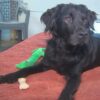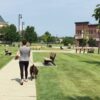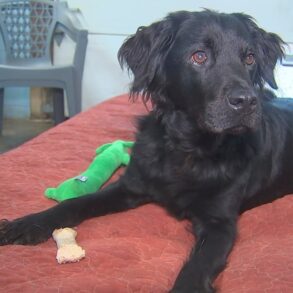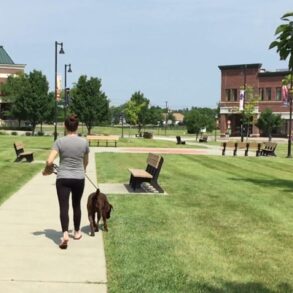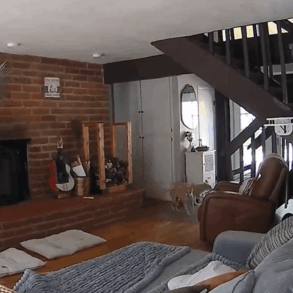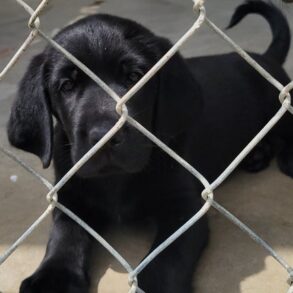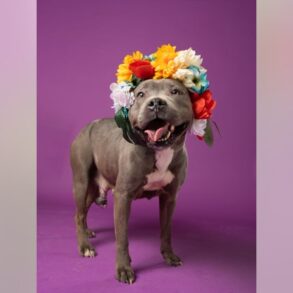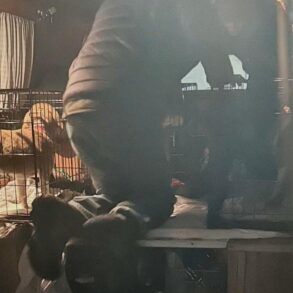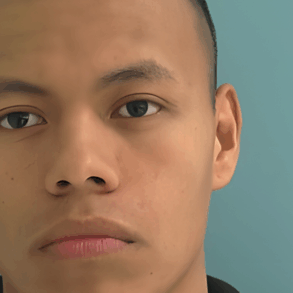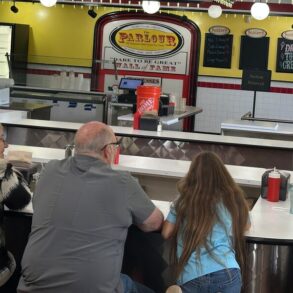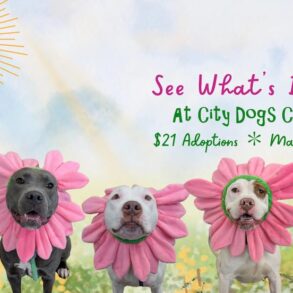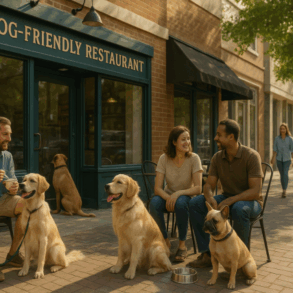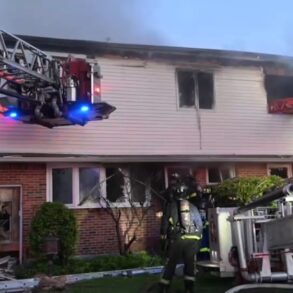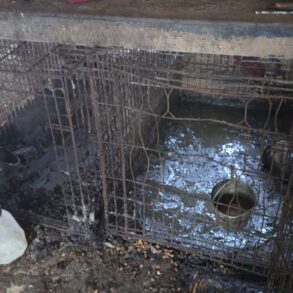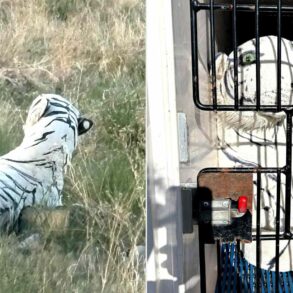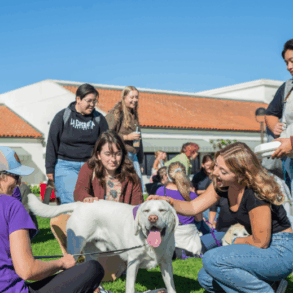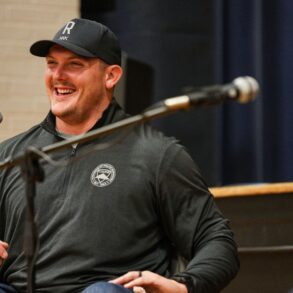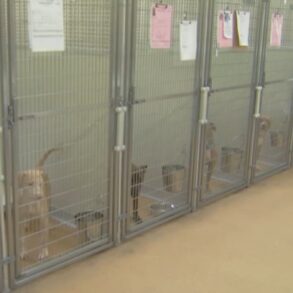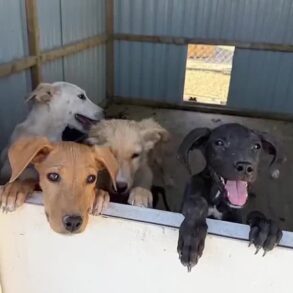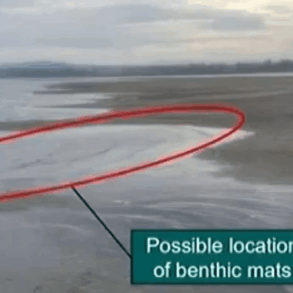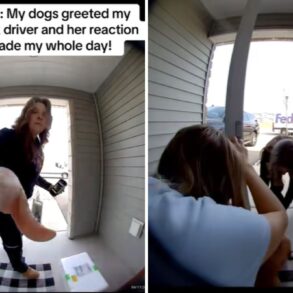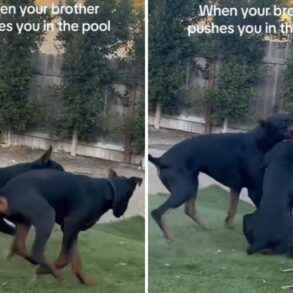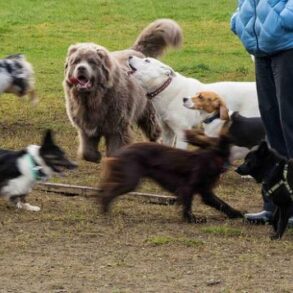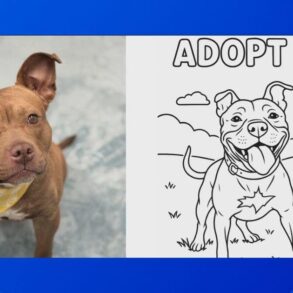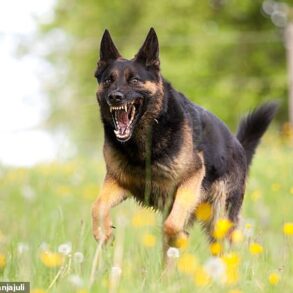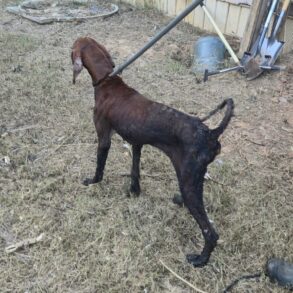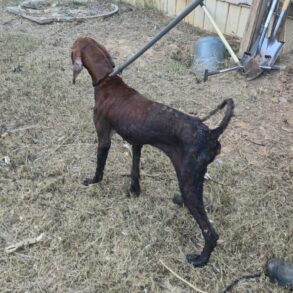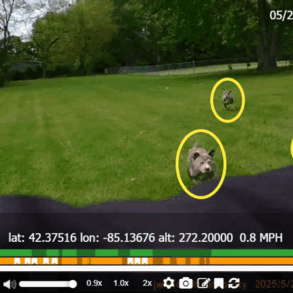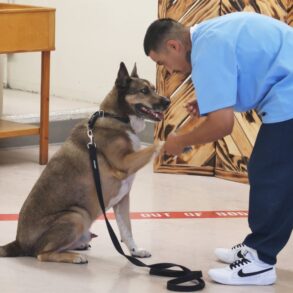A long line of cars transporting cats and dogs drove through the Warm Springs reservation last month, stopping in front of a large mobile rig filled with veterinary supplies and dozens of volunteers from all over the country.
The nonprofit First Nations Veterinary had just arrived in Central Oregon for a tireless two days of work. Their goal: minimize the overpopulation and suffering of dogs and cats on the reservation.
Dogs of all breeds and sizes popped their heads out of their car windows, curious about the volunteers greeting them with excited, high-pitched voices. Some pet owners had their dogs on their laps, like one Warm Springs citizen who said his dog saved his life by helping him with his PTSD. One pet owner had an entire back seat filled with puppies and another had a small, scruffy dog named Tater.
One woman reassured her small dog that everything is OK by kissing her on the head.
“Thank you guys so much for doing this,” she said to the volunteers as she handed her pup off to them.
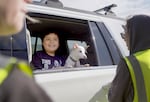
A young boy and his dog, Cosmo, are greeted by First Nations Veterinary volunteers in Warm Springs, Ore., on April 26, 2025.
LaRonn Katchia / OPB
The lack of accessible and affordable veterinary services in low-income Indigenous communities makes it difficult for pet owners to care for their animals and prevent the birth of unwanted puppies and kittens.
With a routine spay or neuter operation costing around $600, not including pre-surgical exams or after care, the cost is often out of reach for those living on Native American reservations. Additionally, veterinary clinics are usually off the reservation, requiring travel and gas costs.
The group offers free spay and neuter services, vaccinations, flea and tick prevention, nail trims, ear cleanings, exams and microchips. Microchips are helpful for shelters and veterinarians to help a lost pet return home by scanning them for an identification number. With help from grant funding, volunteers travel to reservations throughout the year and complete at least 100 spay and neuter operations at each location.
According to First Nations Vet Director Gina Clemmer, those efforts prevent about 300 births at each reservation they visit.
Clemmer, an enrolled member of the Choctaw Nation of Oklahoma with Muscogee descendancy, believes this work makes a big impact in a short amount of time to alleviate the suffering of pets and strays on reservations.
“If we reduce the overall population, we reduce the number of stray animals, and the number of animals that go into shelters,” she said. “It might be the only vet appointment these dogs ever have in their life.”




On April 26, 2025, a dog sits on its owner’s lap at the First Nations Veterinary clinic on the Warm Springs reservation.
Courtesy of First Nations Veterinary
‘I worry about the kids’ safety’
Warm Springs Fire Chief Scott Spaulding sees the impact of stray dog overpopulation firsthand, as he responds to multiple dog bites a month. Most reported bites occur near the Warm Springs K-8 Academy and usually involve a pack of dogs.
“I worry about the kids’ safety,” he said.
Spaulding said he’s seen a reduction in stray dogs in recent years because of free veterinary clinics.
“But the problem is still here, and what would really help is having a local holding shelter where the dogs can go before they find their forever home,” Spaulding said. “That would be a huge help.”
High-volume spay and neuter services help combat overpopulation through minimizing unintended breeding, and they also help prevent aggressive and territorial dog behaviors. When a dog has a litter that the pet owner didn’t plan for or cannot afford to care for, stray animal numbers rise along with reports of aggressive packs.
“Prior to the free clinics coming to neuter and spay, there were many dog fights,” said Warm Springs citizen Wendell Jim. “Nowadays, you don’t hear as many big dog brawls. When we didn’t have the vets coming in, you would see more animals that were injured and they were all beat up. They were torn apart … they had gashes in their sides.”
“When a female stray dog is in heat”, he said, he can hear male dogs competing with each other for her attention. “You could hear a big brawl.”
The Warm Springs community has not reported any human fatalities from dog attacks, but they are prevalent in other areas.
In 2024, the death of a 9-year-old boy, Lester Peneaux, on the Cheyenne River Reservation shook South Dakota after a feral pack of dogs attacked him while he was riding his bike.
THANKS TO OUR SPONSOR:
In 2023, a 7-year-old boy, Kellan Islas, on the Fort Hall Reservation in Idaho died after a group of four dogs attacked him in his front yard. His mother was hospitalized with severe injuries from the attack.
Help in dire situations
Some dogs become more territorial after giving birth, which is the story of Azula, a 3-year-old Rottweiler.
“I didn’t like how she acted after having her babies. She acted differently. She became a strong protector,” said Jennifer Smith, who brought Azula into the clinic.
The volunteers walked Azula into the clinic, trying to calm her down as she barked, pulled on her leash, ripped through three muzzles and attempted to dash.
To alleviate the fear and anxiety Azula showed, the volunteers asked Smith to hold Azula as they administered medication to put her into a temporary sleep. It took a few volunteers to carry Azula up the stairs and into the rig for her spay operation.




The First Nations Veterinary mobile rig sits inside the Bureau of Indian Affairs building on the Warm Springs reservation while volunteers care for pets waking up from their free operations on April 27, 2025.
LaRonn Katchia / OPB
After the successful surgery, Azula woke up confused and scared. She refused to leave her crate, thrashed, barked, lunged and put up an aggressive fight. One volunteer attempted to put a muzzle on her, which almost resulted in a bite. But after a few tries, the volunteer was able to successfully muzzle Azula to reduce the bite risk.
The volunteers and vets soon realized that the only way to get Azula home was to give her more medication to help her calm down and rest.
“We’ve never had a situation like this before,” Clemmer said.
After Azula went back to sleep, the volunteers carried her out to Smith’s car before realizing her sutures had been torn in the process. The vets and volunteers had to act quickly, rushing to the parking lot to fix the sutures before Azula bled too much.
Months before coming into the clinic, Azula had 11 puppies. Four died not long after birth, a few were given away, a few were kept and three were eaten by Azula herself. A dog might eat her own puppy if she doesn’t recognize it, believes it might be sick or injured or because of hormonal imbalances.
Throughout Azula’s recovery, First Nations Vet offered financial help to the family as they treated the dog for a surgical site infection. Now, Azula is recovering. Smith said the procedure was worth the effort, and she plans to bring her four male Rottweilers to be neutered at the next clinic.
Partners help with fences and housing




Two dogs lean on a fence built by the nonprofit Fences for Fido in Warm Springs on Apr. 7, 2025.
LaRonn Katchia / OPB
Free spay and neuter operations are just one way nonprofits are joining together to help the Warm Springs area.
The Warm Springs reservation is home to numerous fences made by Fences for Fido, a First Nations Vet partner and nonprofit organization that provides pet owners with a solution to free-roaming or tethered dogs.
To improve the quality of life for dogs living outdoors, the group builds fences free of charge for families who keep their dogs on chains or tethers or in small enclosures. The group also provides free insulated dog houses.
First Nations Vet also partners with Street Dog Hero in the extreme and rare case of pet surrenders during their clinics.
During the April clinic in Warm Springs, a family brought their female dog to be spayed along with her most recent litter of pups. Unable to care for all the puppies, the family had to surrender them.
First Nations Vet vaccinated all of the puppies and made sure they were safely transported to a trusted shelter. Street Dog Hero in Bend took them in, and they’re living there until they’re old enough to be adopted.
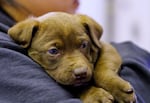



A puppy surrendered to the First Nations Veterinary clinic in Warm Springs, Ore., is adopted by a new owner on April 27, 2025.
LaRonn Katchia / OPB
During the clinic, Ali Peterson with First Nations Vet received a call from a dog owner who said their dog had been hit by a car a few weeks prior. This owner was unable to bring their dog to the clinic and couldn’t afford to care for him after the accident, so First Nations Vet picked up the dog and transported it to the clinic.
After the volunteers examined this dog, who they named “Chonk”, they realized his leg needed major surgery, and possibly amputation. Not being set up for such an intensive surgery, they partnered with Stumptown Strays and 15/10 Foundation to get him the medical care he needed. A First Nations Vet volunteer offered to foster Chonk in Portland where he is currently recovering from his surgery.
“I’m so passionate about this work because the rez dogs are our family. They are part of our community just as much as any other,” said Warm Springs tribal member and First Nations Vet board member Cheydon Herkshan. “We need to treat them with respect in the same way we want a human to be treated with respect.”
The “Friends of the Rez Dogs,” as Clemmer calls her team at First Nations Vet, have upcoming clinics at the Umatilla Tribal Fire Department on May 31 and June 1 and will be on the Hopi reservation in June.
THANKS TO OUR SPONSOR:
This post was originally published on this site be sure to check out more of their content.


